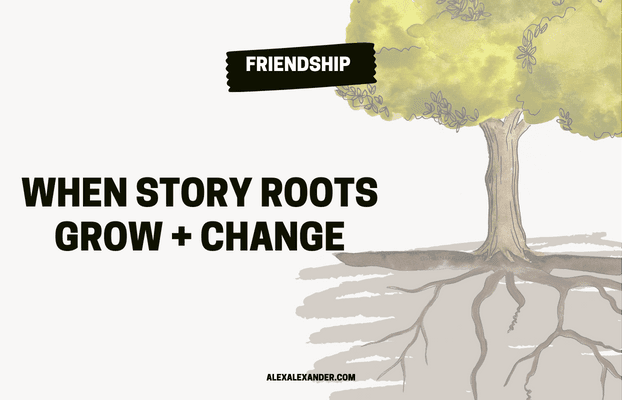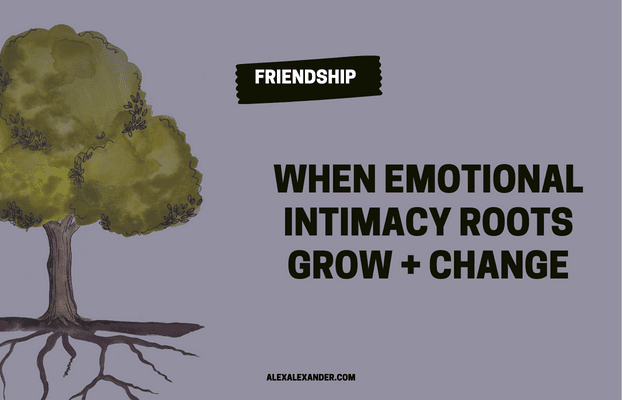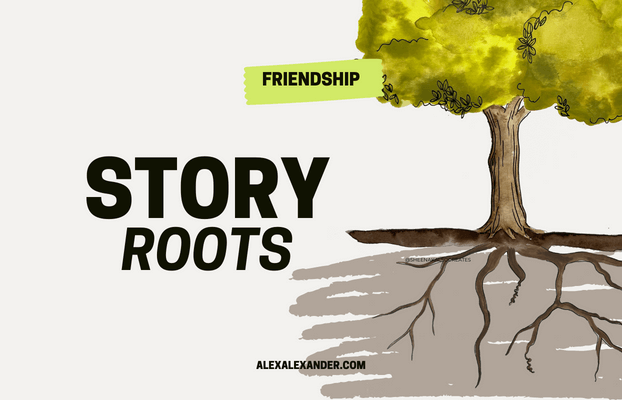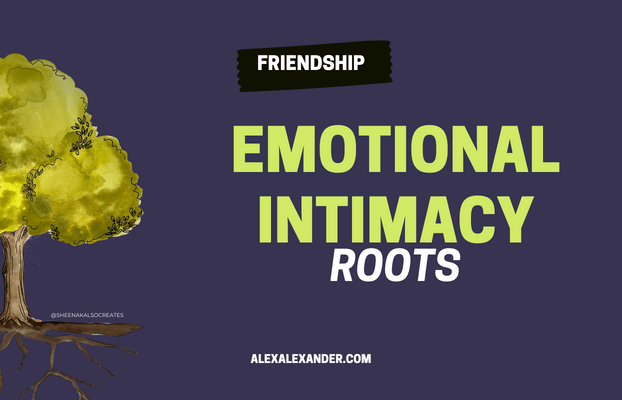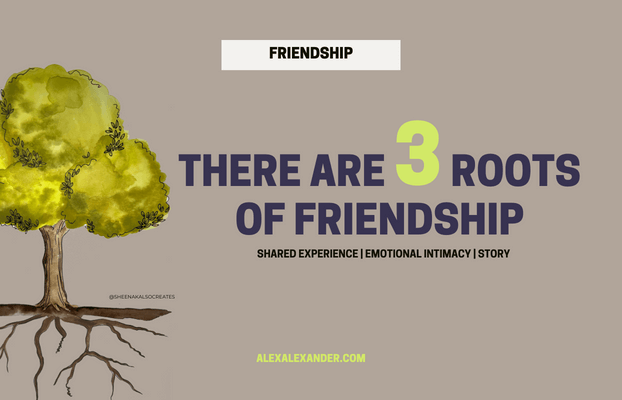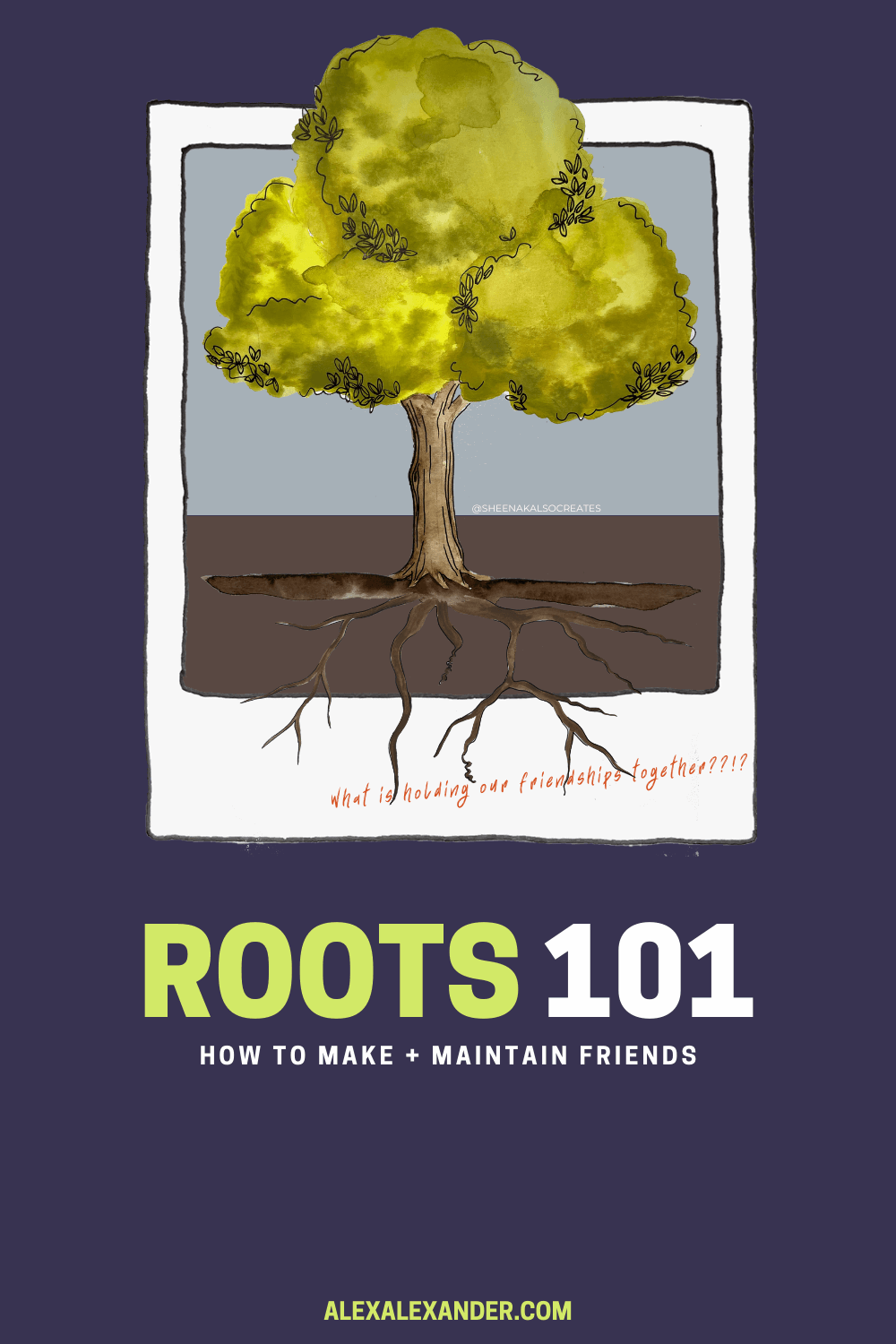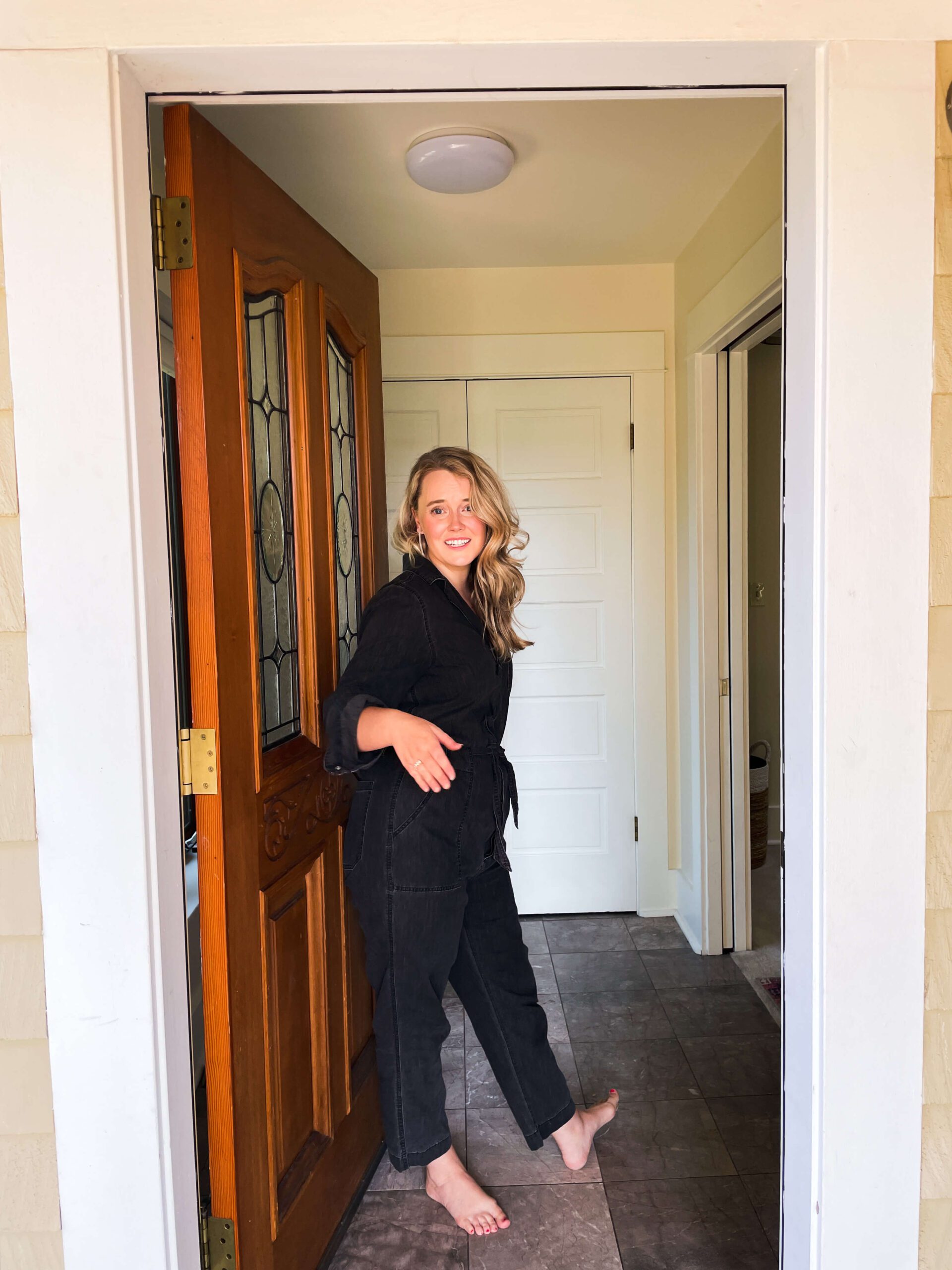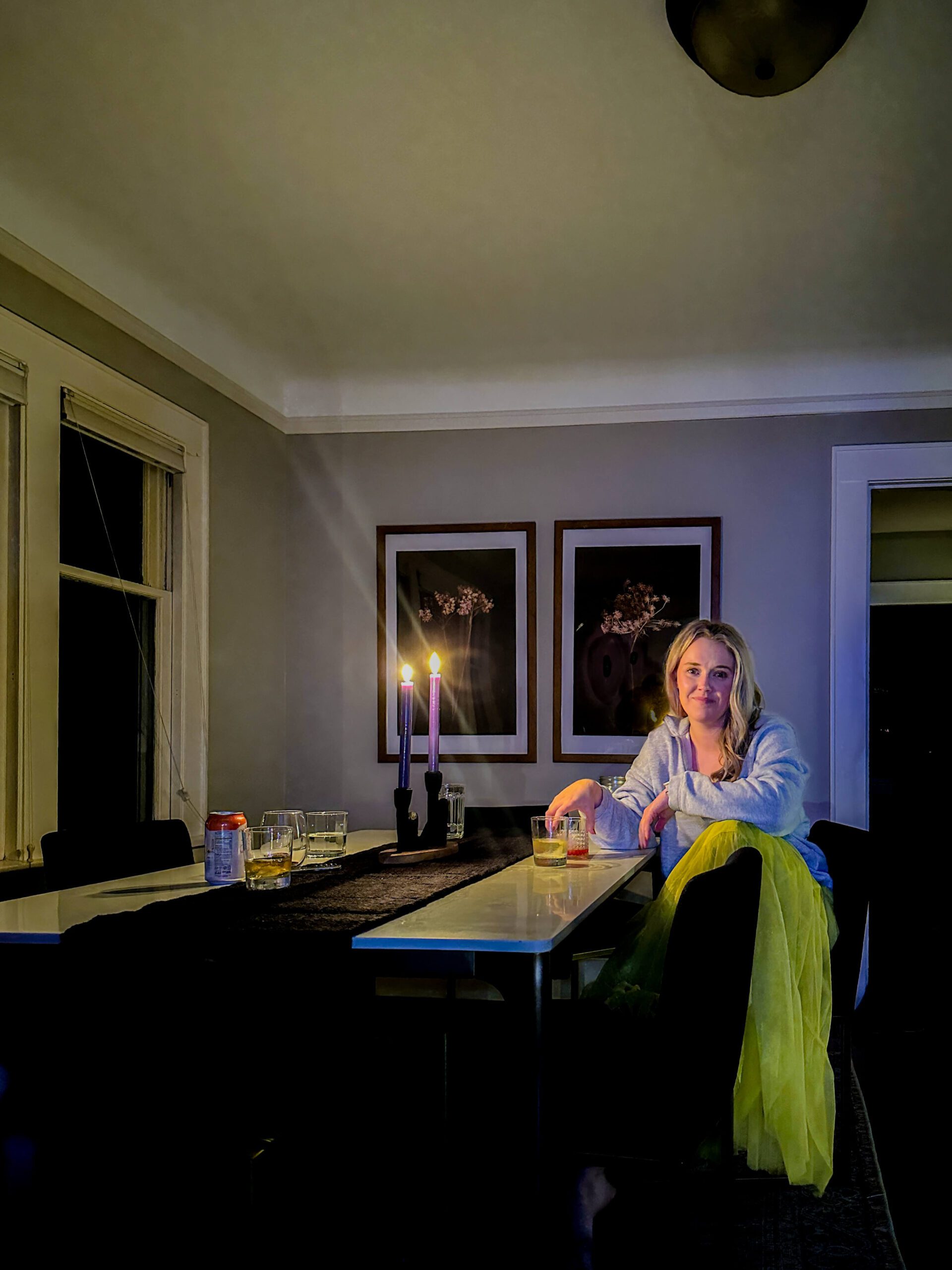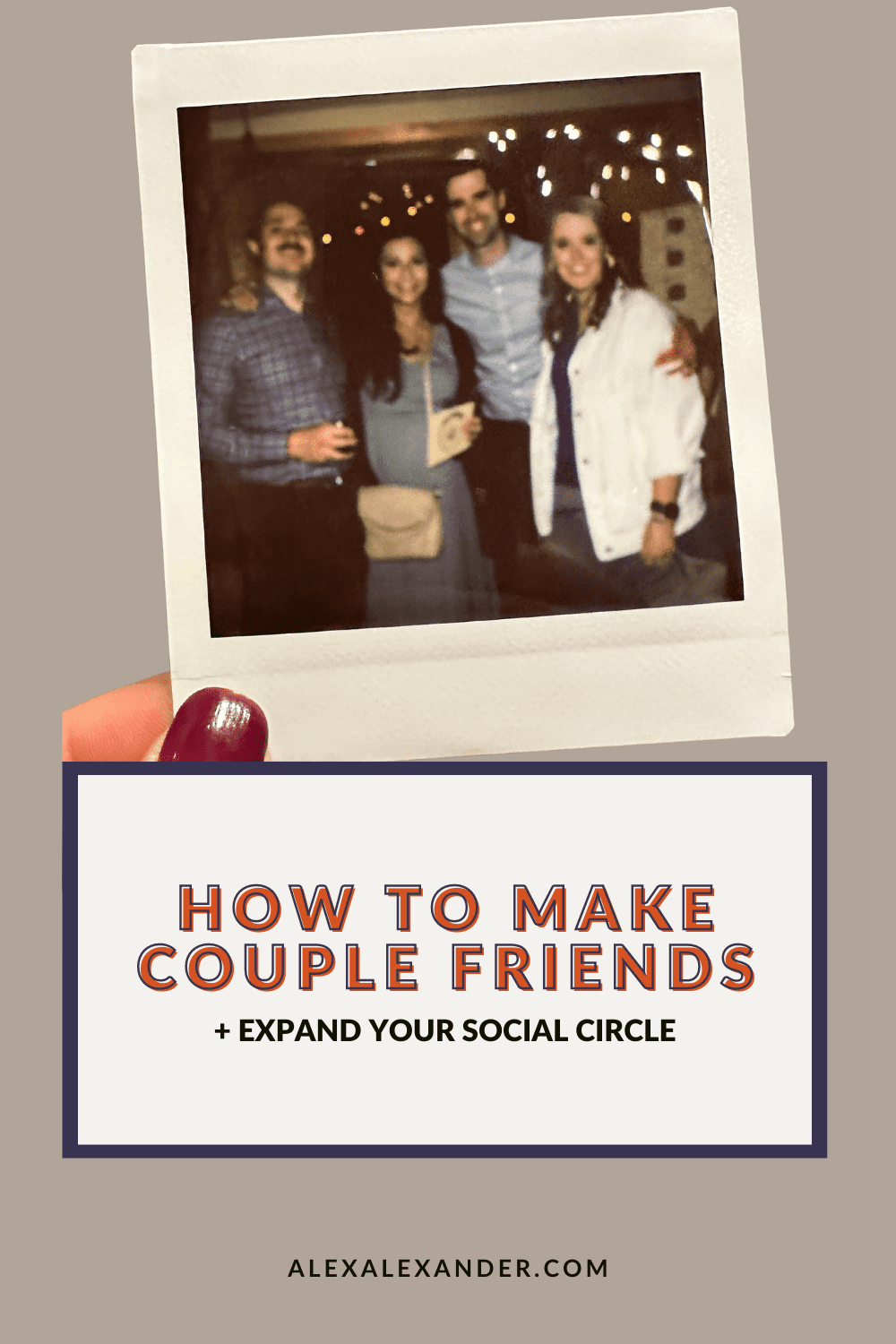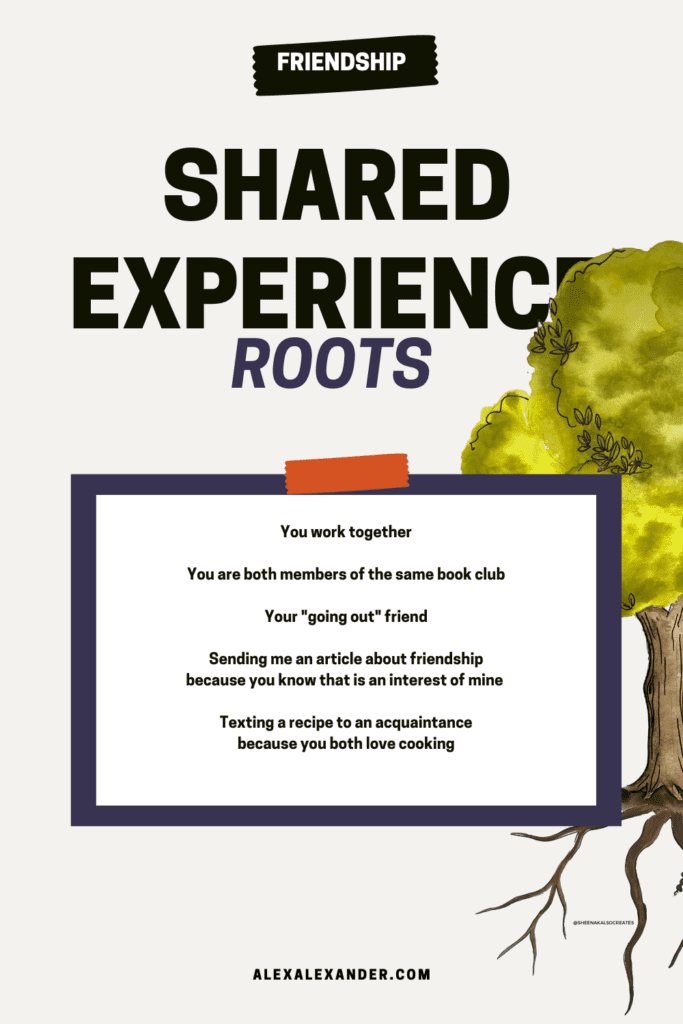
We meet and spend time with friends somewhere. Slowly over time, we develop Shared Experience Roots with them. Shared Experience Roots are often (but not always) the first roots you develop with new friends.
You’ll constantly need to grow new shared experience roots and mourn shared experience roots that die which basically means — you need to be intentional about how you spend time with friends.
TYPES OF SHARED EXPERIENCE ROOTS
Our Connection Points
- You both work at the same company.
- You both are members of the same book club.
- You met volunteering at the food bank.
- Your kids are in the same first-grade class.
- J is a mutual friend. You were both invited to his birthday party.
THE WAYS WE SPEND TIME TOGETHER AND EXPERIENCE LIFE TOGETHER.
- The friend you go out to the bars with every Saturday night.
- You two look forward to boxing classes together.
- A set of couple friends – you love meeting up to try out different restaurants around town.
- The group you text when you want to see a movie.
- The friends you know want to book plane tickets for a last-minute adventure.
THE INTERESTS THAT MAKE US THINK OF EACH OTHER.
- Sharing an article about friendship with me because I write about friendship.
- You both love to cook. You are constantly sharing recipes back and forth.
- You see a card with a cat at the bookstore register. You impulse purchase the card because it’s perfect for your friend, K.
- Clicking the share button on Instagram along with the message, “OMG – This is so you!”
THE MUTUAL ACTIVITIES/INTERESTS YOU SHARE
- You both love to read and text about books you just finished.
- Texting a friend who also played soccer in high school (not at the same school) about your high school team making the state playoffs.
- Texting during Sunday Football as if you are together in person discussing each play.
- Sending outfit ideas, fashion tips, and sales to a friend who loves fashion as much as you do.
THE WAYS WE ARE COMFORTABLE SPENDING TIME TOGETHER.
- Asking a coworker to happy hour after work – but aren’t quite at the place where you hang out on weekends.
- Inviting one of your oldest friends to your parent’s anniversary party.
- You met through mutual friends and will join in when that friend invites both of you to a backyard BBQ, but you aren’t sure you are close enough to ask them to your backyard BBQ.
THE REASONS WE INITIATE CONTACT.
- You just joined a running group and met a new friend. You’ve don’t talk outside of your weekly club meetings. The running store you both love is having a sale! You decide to send a text, so they don’t miss out.
- You constantly send slack messages during the workday but rarely talk on weekends.
- You always talk to this other mom at the park. She mentioned she knows a great babysitter. You rarely speak outside of the park encounters, but you text randomly and ask for the babysitter’s number.
GROW INITIAL SHARED EXPERIENCE ROOTS
SHARED EXPERIENCE ROOTS ARE OFTEN BUILT PASSIVELY. YOU MEET SOMEONE SOMEWHERE, AND YOU GET TO KNOW EACH OTHER OVER TIME.
You work together.
You are neighbors.
You are mutual friends with R.
You attend the same networking group.
You see each other at after-school pick-up for your kids.
After a while, you might start inviting them to some offshoot activities – more on that below.
Intentionally building new shared experience roots isn’t as common and requires you to put yourself out there.
Whether it’s a new friend or a long-time friend, you suggest that you spend quality time together in new ways. For example:
You and an old friend want to try salsa dancing.
You’ve both talked about wanting to try salsa dancing.
One of you has to ask, “We’ve talked about salsa dancing forever. Do you want to book a class and go?”
Then you have to discuss which classes to take and compare schedules, perhaps shift around other commitments.
You have to be OK looking like beginners in front of each other when you take those first classes.
After taking a few classes, you have to discuss whether you both enjoyed it enough to keep attending.
If you want to continue, you have to be proactive about signing up for the next session.
OVER TIME YOU HAVE TO FIND CONSISTENCY AND FREQUENCY WITH YOUR SALSA DANCING ROOT.
Friendships that feel present + connected.
There are endless examples of friendships that feel strong, present, and connected, losing their primary shared experience root and suddenly feeling difficult, frustrating, and disconnected.
- Friends who moved, and we haven’t found new ways to connect
- Friends who are now new parents and no longer go out on weekends
- Friends who get a new job, but we never saw outside of work before
- We spent every day with friends in college, but only ever call for catchup marathon calls nowadays.
- Our gym friend gets injured and leaves the gym. We rarely see them anymore.
What are the ways you spend time with friends?
What are the topics you regularly connect about?
If you want this to be a lasting friendship, build a variety of roots and by finding various ways of spending quality time together.
FREQUENCY, CONSISTENCY … BUT ALSO VARIETY
When it comes to friendship, there’s a lot of talk about frequency + consistency.
We need to talk more about variety.
Finding a routine with friends is often necessary. A routine saves us time, ensures consistency, and creates predictability – all of which are important.
Monthly book club – Work – Church – Weekly walking dates – Text threads with your people
Variety makes change easier.
I highlighted this in the work friends example above, but to clarify it.
Building a variety of roots with that work friend means that when your friend gets a new job, you already go on double dates with spouses or attend a weekly running club.
While your frequency will drastically change because you won’t see each other at work every day, you still have predictable and comfortable ways to see each other.
You can depend on weekly running club meetings.
You can plan for the next few months of double dates.
While you are together at the running club or out to dinner, you have the time and opportunity to suggest other ways to spend time together easily and, in doing so, make your friendships last.
VARIETY ALSO HELPS WITH THE EVER-PRESENT PROBLEM OF “I DON’T HAVE TIME.”
Ever struggle to find time to spend time with friends when life gets busy?
You usually meet up for dinner or get drinks, but you are struggling to find a time since you feel overcapacity juggling family, work, and self-care.
Having a variety of roots means that you can just lean into other options.
Running club can be a “double up” way to spend time together.
You are both actively pursuing your health goals and taking care of your mental health.
You want to run anyways, but you get to spend that time together.
Running with a friend allows you to maximize the times you do have available, even if they are few and far between.
If you also feel comfortable:
- Face-timing your friend while you cook dinner
- Voice memoing a friend after you both watch your favorite show
- Invite that friend to meet up with you on next month’s business trip
You have more options even when those solo dinner dates with the various amazing women in your life just aren’t feasible.
VARIETY ALSO HELPS WITH THE EVER-PRESENT PROBLEM OF “I DON’T HAVE TIME.”
VIRTUAL WAYS TO SPEND TIME WITH FRIENDS
We’ve seen that virtual options are abundant in the last couple of years. Virtual hangouts are great ways to stay in touch with friends who live far away, have limited capacity, or limiting life circumstances at the moment.
We’ll dive deeper into virtual options, what makes them fulfilling, and ways to suggest virtual hangouts in future blog posts.
SHARED EXPERIENCE ROOTS ARE THE FOUNDATION OF OUR FRIENDSHIPS
Think about your closest friendships. Or perhaps, think of friendships you had when you were younger – high school and college, especially.
Those “we can do anything together” friendships are often seen as the gold standard or the marker of being a “true friend.”
When we are younger – teens and 20s – it’s more acceptable to invite friends to join you for just about anything.
- Want to run errands?
- Want to be my plus one to my mom’s birthday party?
- Want to come over and do homework together?
We had so many shared experience roots.
AS ADULTS, SOCIETY TELLS US TO FIND A PARTNER, AND SO MANY SHARED EXPERIENCE ROOTS SHIFT TO THAT PERSON.
It makes sense, but after you’ve tried out shared experience roots together, are they really quality time, or would time spent with other friends doing those same activities feel more enjoyable?
- Do all of them feel right?
- Are some of them just there out of duty?
- Or perhaps some of them are there because we have so much frequency with partners that they are just the easy ask to join us on a hike, even though they dread hiking.
FINDING VARIETY AGAIN WITH FRIENDS AS ADULTS REQUIRES US TO BE INTENTIONAL.
- We have to try new things together.
- Find time together.
- Allow each other into our lives – coming over when our house isn’t clean, hanging out in our sweatpants on the couch, inviting a friend over to work on our couch.
SHARED EXPERIENCE ROOTS KEEP US CONNECTED.
We reach out to friends because we are comfortable spending time together in specific ways.
They share the same interest.
They enjoy the same activities.
Our shared experience roots are where we create emotional intimacy roots and act in a way that confirms our story roots.
Read more about that here.
Curious how to keep a friendship strong? Read about the other types of roots.
